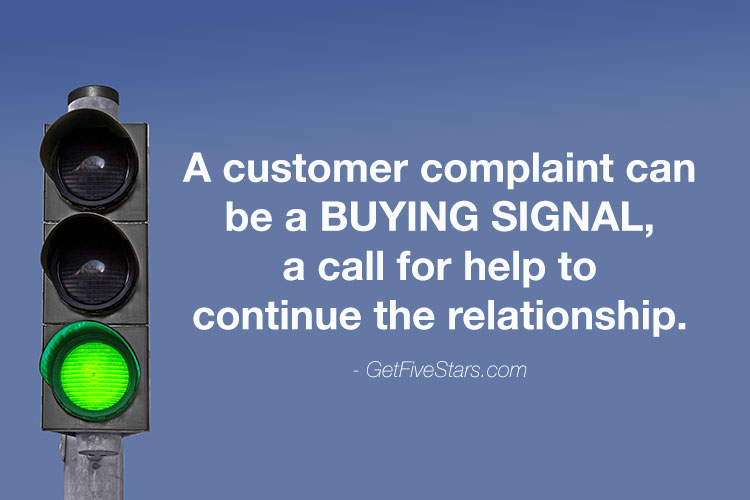In June, Mike Blumenthal takes a deep look at customer complaints with a series of articles. View all of the posts covering strategy, ideas, customer insight, survey data and more to improve how your business handles customer complaints.
You love your business. It might even feel like your “baby”. So when a complaint comes in from a customer it can be devastating. And yet this painful experience of things going wrong, can actually be a huge blessing.
Instead of cringing and losing sleep next time you get a complaint, see it for what it is and use it to cement your bond with your customer and improve your business. There is gold in that complaint, lemonade in that lemon… you need to adjust your thinking so that you can see it and hear it and respond appropriately.
I know you are thinking “easy for him to say, he doesn’t have to listen to them”. I managed a bricks and mortar business with 50 employees for more than 20 years and during that time I got my fair share of complaints.
While I didn’t always succeed I did try to follow the advice that follows. And I still lost a fair bit of sleep. Trust me, it wasn’t worth it.
How can complaints actually be good for your business?
1- Most unhappy customers don’t complain they just don’t come back, ever.
When customers are unhappy with your service most (94%) will leave, say nothing and just not come back. A few (4%) will typically complain. Consider yourself lucky if they do complain instead of just abandoning you and your business. At least with a complaint you know that something went wrong and you can try to fix it for both this customer and future ones.
2- A complaint is a buying signal.
A complaint can be a buying signal that customer wants to continue to do business with you but is feeling so much pain they are not sure they can. The complaint is often a call for help so that they can maintain their relationship with you. It may feel like a personal attack but its really the customer attempting to reconcile their conflicting feelings.
3- A complaint is private, between just you and the customer.
Unlike a bad review, its not something that the world can see. Its impact is limited. How you handle it will dictate whether you keep the customer or whether you get that bad review. Most consumers do not default to writing a bad review when their shopping experience goes wrong.
In fact it would appear that most customers usually only write bad reviews after things went very, very wrong. Despite their bringing the issues to the businesses’ attention, often multiple times, no solutions were offered.
4- A complaint, if successfully resolved, will retain the customer 70% of the time.
Acquiring a new customer is expensive (up to 25 times more expensive than retaining an existing one) and most of your sales come from your existing customers not new ones. If you handle the complaint well, not only will you keep the customer you will avoid that bad review. The willingness of 70% of customers to continue to do business with you after a complaint is resolved makes for a compelling ROI and makes it worth your while to solve the problem.
5- A complaint is a way to learn what needs to be improved
A complaint reflects a failure of some sort either in your business processes or in setting expectations of the customers. A careful examination of the causes can really help you improve and hopefully avoid the situation in the future.
There is a saying that what doesn’t kill you makes you better. Complaints are much like that. The trick is to be better with that customer rather than without them. As Earl Netwal has said Complaints are the raw material out of which a better business is built.
If you can intervene early with the customer, intervene with integrity and intervene with a true desire to learn and resolve the problem you can not only help your business be better but you can keep that customer.



Comments are closed.